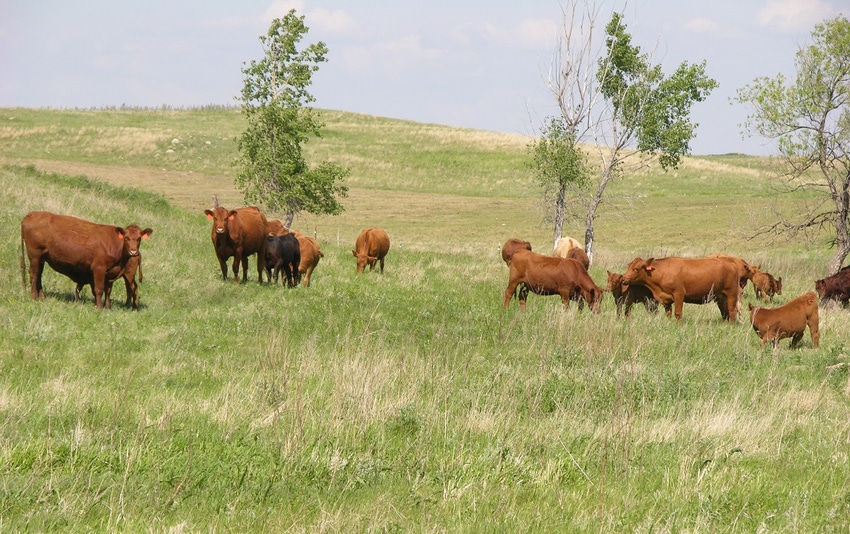
It's likely the No. 1 discovery (or possibly re-discovery) of the past decade or so in animal health has been the importance of the soil.
The soil’s health biologically, chemically and physically makes major impacts on human and animal health that are becoming astronomical in proven importance.
We're learning there are two principles or rules that beef producers need to ingrain and focus on:
Plants require animals for health.
Animals require plants for health.
An add-on is that soil requires both plants and animals applied in the right ways for life, growth, successful regrowth and health. Without plants and animals soil quickly becomes dirt.
Humans require all of the above. The same is true for our best friend the dog that we can learn bunches from while enjoying their company.
We know how to grow grain crops in near-sterile dirt with highly soluble salts of nitrogen, phosphorus and potassium. These crops are capable of making fuel and even fattening chickens, turkeys, catfish, hogs and cattle if we carefully balance the ration and nothing goes wrong. Of course, out in the field we are constantly having to buffer the dirt and apply water to the tune of 20,000 gallons per acre every few days. The list of other inputs and cost necessities is near exhaustive.
Not only is the crop a high-input situation, but so are the animals receiving the feed. Highly stressed systems respond to vitamin packs, minerals, trace mineral packs, enzymes, antibiotics, probiotics, anti-parasitics, insecticides, and bunches of other band-aids. There seems to be no end to these support programs we need for "simplistic" industrial agriculture.
This reminds me that Henry Ford was quoted as having said he “just needed a man’s hands and he hated paying for the rest.”
This piecemeal attitude always springs to my mind when I see, taste and breathe my neighbors spraying chemicals on the weeds their “support” personnel assured them are bad, while our 499 Ranch cattle are grazing the same plants as an important part of their daily ration.
Far from nutritive or severely lacking nutritive density are two descriptions of the grains produced by much of the world’s corn, wheat, rice and bean producers. The animals have been removed. The same is true of the four to seven year rotations thru pasture. Remember, diversity yields stability and wellness.
Modern diet management systems and much of what I call funny food results in human diets that are far from nutritive. New major health issues such as obesity, type II diabetes, autism, childhood leukemia, dementia, Parkinson’s, Alzheimer's, cancer and food allergies are rampant. Don’t forget the cardiovascular disease that accounts for 50% of all funerals was near nonexistent prior to the 20th century and the advent of heavy grain production and feeding. Texas cowboys and pioneers died from horse wrecks, exposure and maybe some "Injun arrows" and gun battles, but not heart disease.
The No. 1 health problem in the 19th century was the over-drinking of alcoholic beverages. Today the list is long and I believe in the long run ranching and farming is going to catch bunches of the blame.
Presently we have a bunch of big money investing in and planning to market petri-dish meat by 2021. I will assure all of them and beef producers that the natural model is far too complex to replicate successfully in some bowls of protoplasm.
About the Author(s)
You May Also Like






